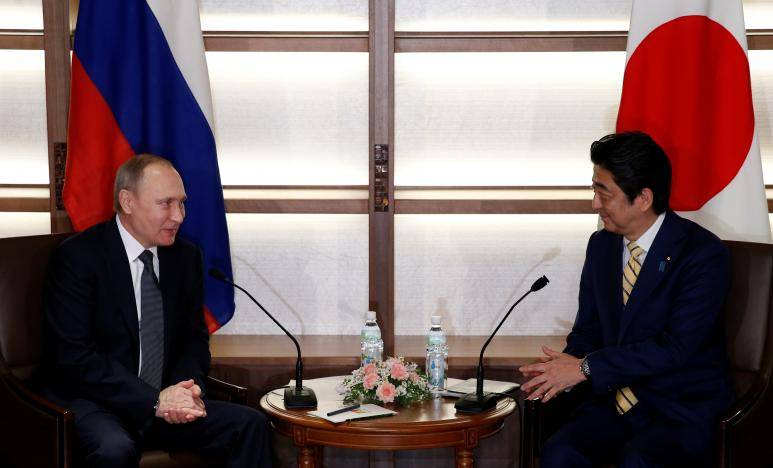Tokyo (Reuters): Japanese Prime Minister Shinzo Abe and Russian President Vladimir Putin met at a second day of negotiations on Friday after Abe to resolve a territorial row that has suppurated since World War Two.
Putin looked set to come away with a slew of economic deals and achieve what experts said was a key goal - easing his international isolation when Moscow is under fire over the destruction of eastern Aleppo in Syria, where Russia is backing Syrian President Bashar al-Assad’s forces.
James Brown, a professor at Temple University's Japan campus said, "Abe must be bitterly disappointed."
Brown added "Putin has given away absolutely nothing and, in return, he has received the offer of enhanced economic cooperation. Just as valuably, he has demonstrated divisions in G-7 (Group of Seven) policy on Russia and has encouraged Japan to distance itself from U.S. policy."
A Japanese official confirmed that Japan and Russia agreed on day one of the summit, held at a hot spring resort in southwest Japan, on the importance of continuing security dialogue.
Ministerial level security talks were halted after Russia annexed Ukraine's Crimea region in 2014, when the United States and other Western nations imposed sanctions on Moscow.
They also agreed to start discussing economic cooperation on the disputed islands, a row over which has kept them from signing a peace treaty formally ending World War Two, a Russian official said.
The islands in the Western Pacific, called the Northern Territories in Japan and the Southern Kuriles in Russia, were seized by Soviet forces at the end of World War Two.
Ahead of second day of the summit, to be held in Tokyo, the Russian Direct Investment Fund (RDIF) and Japan Bank for International Cooperation (JBIC) signed a memorandum of understanding (MOU) to establish a $1 billion investment fund to promote economic cooperation between the two countries.
Kremlin economic aide Yuri Ushakov said on Thursday that the two sides would issue a statement about possible joint economic activity on the disputed islands on Friday, adding such activity would be based on Russian legislation.
A Japanese spokesman, however, reiterated Japan's policy that any joint economic activity should not infringe on Tokyo's legal stance, underscoring a remaining gap.
Abe has hoped the lure of economic cooperation for Russia's economy, hit by low oil prices and Western sanctions, would pave the path for progress.
The Japanese leader has pledged to resolve the territorial dispute, in hopes of leaving a diplomatic legacy and building better ties with Russia to counter a rising China.
Putin, however, does not want to tarnish his domestic image as a staunch defender of Russian sovereignty.
Japan has long insisted its sovereignty over all four islands be confirmed before a peace treaty is signed, but has recently been rethinking that stance.


